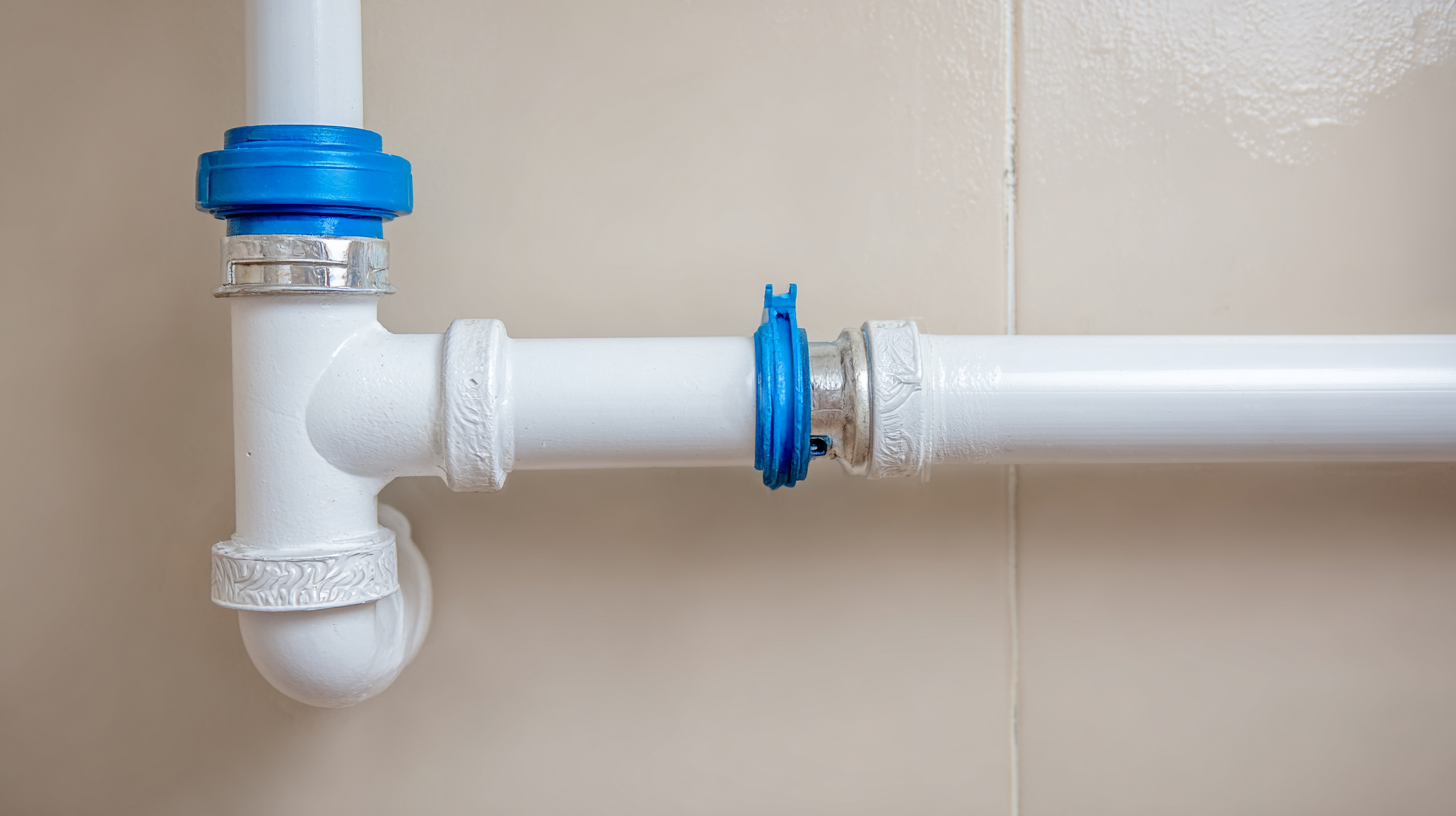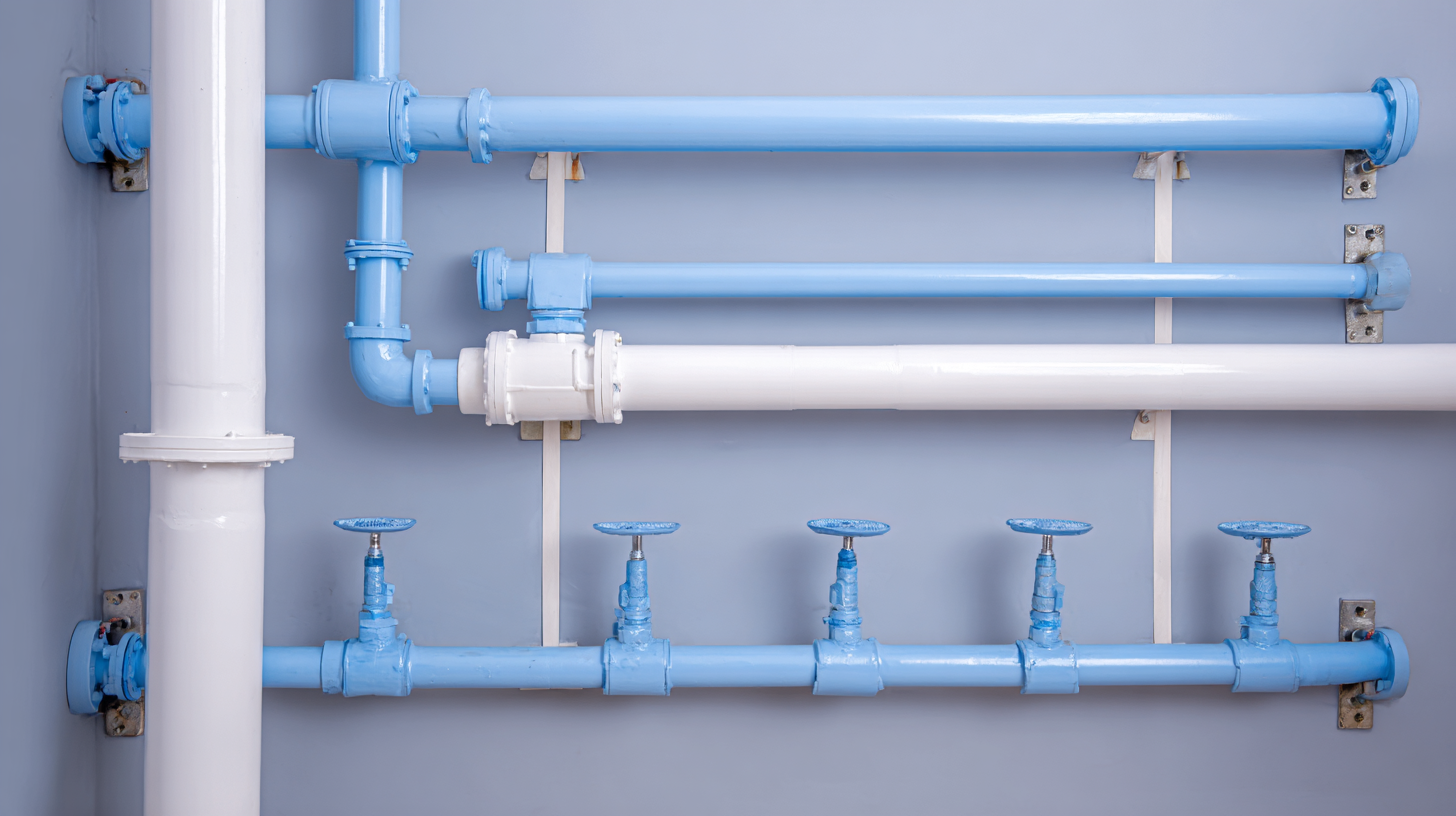Understanding the Benefits and Applications of PVC Water Pipes in Modern Plumbing Systems
In the modern world of plumbing, the choice of materials can significantly influence the efficiency and longevity of water systems. One of the prominent innovations in this field is the PVC water pipe, which has gained popularity due to its numerous advantages over traditional materials like copper and galvanized steel. This introduction aims to explore the benefits and diverse applications of PVC water pipes, highlighting their resistance to corrosion, lightweight nature, and ease of installation. As plumbing systems become increasingly sophisticated, understanding how PVC water pipes fit into contemporary plumbing solutions is essential for both homeowners and professionals alike. This guide will delve into the various ways PVC water pipes can enhance plumbing performance, ultimately illustrating why they are a vital component of modern plumbing systems.

Key Advantages of PVC Water Pipes in Contemporary Plumbing Systems
PVC water pipes have become a cornerstone of modern plumbing systems due to their many advantages. One of the key benefits of PVC pipes is their durability and resistance to corrosion, unlike traditional materials like metal. This resistance extends the lifespan of plumbing systems, reducing the need for frequent replacements and repairs. Additionally, PVC pipes are lightweight and easy to handle, making installation quicker and more efficient, which can ultimately lower labor costs for construction and renovation projects.
Another significant advantage of PVC water pipes is their versatility in applications. They are suitable for various plumbing needs, including potable water distribution, drainage, and sewage systems. The growing market for PVC pipes highlights the increasing demand in these sectors, driven by urbanization and improvements in infrastructure. Furthermore, PVC's excellent hydraulic properties enable effective water flow while minimizing pressure loss, making them an ideal choice for contemporary plumbing systems where efficiency is paramount. As the PVC pipe market continues to expand, its role in enhancing plumbing systems remains crucial in meeting modern demands.
Understanding the Benefits and Applications of PVC Water Pipes in Modern Plumbing Systems
| Advantage | Description | Applications |
|---|---|---|
| Lightweight | Easier to handle and install compared to metal pipes. | Residential plumbing, irrigation systems. |
| Corrosion Resistance | Does not rust or corrode, ensuring durability over time. | Water supply systems, drainage systems. |
| Cost-Effective | Lower initial costs and maintenance expenses than other materials. | Construction of homes, infrastructure projects. |
| Flexibility | Can be easily shaped and bent without breaking. | Complex plumbing designs, curved piping needs. |
| Low Thermal Conductivity | Reduces heat loss, maintaining water temperature. | Heating and cooling systems, hot water distribution. |
| Environmentally Friendly | Recyclable and manufactured using fewer toxic materials. | Green building projects, sustainable construction. |
Top Applications of PVC Water Pipes in Residential Plumbing
PVC water pipes have become a cornerstone in modern residential plumbing due to their numerous advantages and diverse applications. These pipes are known for their durability, resistance to corrosion, and lightweight nature, making them easy to handle and install. In residential settings, PVC pipes are primarily used for water distribution, drainage, and venting systems, ensuring a reliable water supply and efficient waste management.
The market for PVC water pipes has been rapidly growing, driven by increasing demand for efficient plumbing solutions and infrastructure development. Various types of PVC pipes, such as Schedule 40, Schedule 80, and DWV (drainage, waste, and vent) pipes, cater to different plumbing needs. These pipes not only serve in residential plumbing but also have significant applications in irrigation systems, sewage systems, and even electrical conduits. As homeowners and builders increasingly seek sustainable and cost-effective materials, the utilization of PVC pipes will continue to expand in modern plumbing systems.

Cost-Effectiveness and Durability of PVC Pipes Compared to Alternatives
The cost-effectiveness and durability of PVC pipes make them a preferred choice in modern plumbing systems. As the global demand for PVC pipes continues to grow, the market is projected to expand significantly, with an estimated size reaching $1,290 billion by 2030. This growth is driven by various factors, including the unique properties of PVC that contribute to its longevity and resilience against corrosion and pressure. Compared to traditional piping materials like metal and clay, PVC pipes not only reduce installation costs but also ensure lower maintenance expenditures over their lifecycle.
In addition to their economic advantages, PVC pipes offer versatility across different applications. The market segmentation reveals different types of PVC pipes, such as pressure pipes, drain-waste-vent (DWV) pipes, and electric conduits, each catering to specific plumbing and construction needs. The increasing popularity of rigid PVC and flexible PVC further enhances their usability in sectors ranging from building and construction to automotive and healthcare. As industries increasingly seek sustainable and reliable materials, the adoption of PVC pipes in modern plumbing systems is likely to continue thriving, solidifying their role in contemporary infrastructure development.
Essential Tips for Choosing and Installing PVC Water Pipes
 When choosing and installing PVC water pipes in modern plumbing systems, it is essential to consider several key factors that can greatly influence performance and durability. First, the diameter of the pipes must align with the specific requirements of your plumbing layout to ensure optimal water flow. It's advisable to consult with knowledgeable professionals or utilize detailed guides to avoid common pitfalls during the installation process. Additionally, selecting the right PVC pipe class can enhance resistance to pressure and temperature fluctuations, ensuring the longevity of your plumbing system.
When choosing and installing PVC water pipes in modern plumbing systems, it is essential to consider several key factors that can greatly influence performance and durability. First, the diameter of the pipes must align with the specific requirements of your plumbing layout to ensure optimal water flow. It's advisable to consult with knowledgeable professionals or utilize detailed guides to avoid common pitfalls during the installation process. Additionally, selecting the right PVC pipe class can enhance resistance to pressure and temperature fluctuations, ensuring the longevity of your plumbing system.
Proper installation techniques are crucial for maximizing the benefits of PVC pipes. When cutting and joining pipes, make sure to use appropriate tools and adhesives that are recommended by manufacturers to prevent leaks and maintain system integrity. Furthermore, it’s beneficial to follow a systematic approach, much like the comprehensive renovation guides gaining popularity recently, which provide step-by-step instructions for DIY enthusiasts. By adhering carefully to these guidelines, homeowners can achieve a reliable and efficient plumbing system that meets modern standards for both functionality and safety.
Maintaining PVC Water Pipes for Longevity and Efficiency
Maintaining PVC water pipes is crucial for ensuring their longevity and operational efficiency in modern plumbing systems. Regular inspections should be conducted to identify any signs of wear, leaks, or blockages. Homeowners can easily check for visible cracks or joint separations, which may indicate that the pipes need replacement or repair. Additionally, it's advisable to clear debris and obstructions from the pipe surfaces, as these can lead to reduced water flow and increased pressure, ultimately shortening the lifespan of the pipes.
Another key aspect of maintenance involves monitoring water quality and pressure. High water pressure can cause stress on PVC pipes, potentially leading to ruptures. Installing pressure regulators can help manage this risk and preserve the integrity of the plumbing system. Furthermore, maintaining a consistent temperature in the plumbing environment is essential, as extreme temperatures can affect the flexibility and strength of PVC. By following these maintenance practices, homeowners can ensure that their PVC water pipes remain efficient and durable, contributing to a reliable plumbing system.

